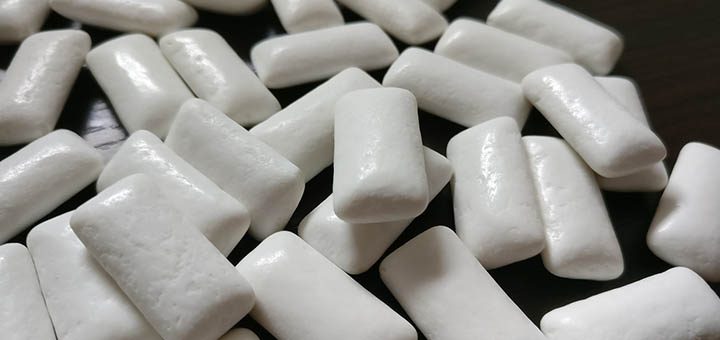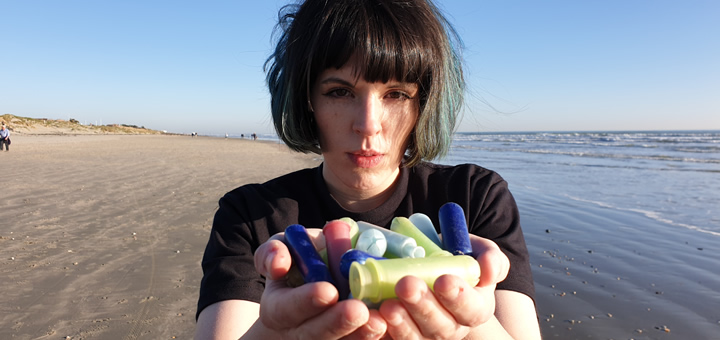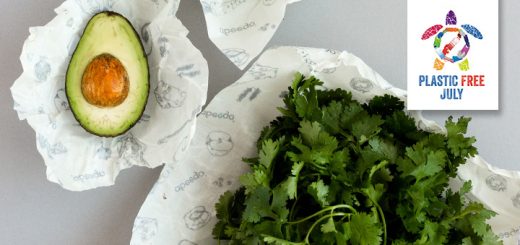
Some surprising places you’ll find hidden plastic (and some plastic free alternatives)
We all know the problem with plastic, it’s something we’ve been banging on about for a long time! In the last few years the issue has really come into the public consciousness and people really do want to do something about, but it can be frustrating when you are buying products which you think aren’t made of plastic only to realise things aren’t what they seem.
With Plastic Free July here you are hopefully trying to cut down or avoid using plastic at all, you’ll need to make sure you don’t fall into a few of these plastic traps!
We’ve picked out a few items you may not realise often contain plastic:
Chewing Gum
Have you ever really given much thought to what chewing gum is made of? No? We’ll you wouldn’t be alone! Most people think it is made from tree sap, or some kind of natural rubber material, it certainly used to be. Chewing gum in one form or another has been with us for thousands of years, it became a commercial product in the USA in the mid Nineteenth Century but as we got to the 1960s that manufacturers switched to a ‘gum base’ which is a non biodegradable substance made from synthetic polymers, so essentially plastic simply because it was cheaper. Most mainstream brands will contain a gum base. There are however plastic free gums available now. One such plastic free chewing gum is Chewsy, which is a plastic free natural chewing gum made from just five ingredients and is fully bio-degradable!

Cardboard Coffee cups
You may have wondered how your carboard coffee cup doesn’t fall to bits when there is coffee in it? Well that’s because they aren’t just cardboard, they are plastic lined. It was the big coffee chains that popularised the takeaway cups and customers would be forgiven for not realising there was plastic inside them, many of the chains would even give you one when you sat in! Of course there are many reusable alternatives available, you just need to remember to take one with you! If you don’t have one then why not just take a bit of time to yourself and sit in to properly enjoy your coffee? If you don’t have the time then maybe you could just skip it all together, it won’t take many skipped coffees to pay for a reusable cup!
If you don’t have a spacious bag to carry a cup in, then you can always try one of the ingenious Stojo collapsible cups.

Clothes
The fashion industry has a huge environmental and human impact. It’s difficult to know where to start, on one side we have the human cost of exploitation, poor and dangerous working conditions in sweatshops, then we have the many different environmental costs, whether that be the huge carbon emissions or the chemical pollution involved in production. Again the plastic problem is hidden from sight. It is estimated that 10% of the plastic which finds it’s way into the ocean is made up of tiny clothing fibres. Polyester, nylon, acrylic, and other synthetic fibres make up around 60% of material in clothes worldwide. Every time these clothes are washed tiny plastic fibres are released into the environment contributing to the microplastics problem. The use of synthetics fibres in clothing is continuing to rise and rise every year with little being done about it. To make the problem worse ‘fast fashion’ has come about encouraging people to buy cheap almost disposable fashion which will only be worse a few times or even just once. Of course this cheap fashion is far more likely to be made out of cheap synthetic fibres.
So what can you do? The most simple solution is to buy clothes made from natural fibres, clothes that are made to last. Or perhaps you could buy second hand, you’ll be amazed what you can find in charity shops, meaning not only are you helping the charities you are buying from but you are also helping the environment whilst getting a bargain for yourself! Why not take part in #SecondHandSeptember from Oxfam to get you started!
There is also help at hand to help capture some of these plastic fibres before they get a chance to flow down into the marine ecosystem, Guppyfriend bags do this, just place your washing in a Guppyfriend and you can actually see the fibres collect.

Glitter
When you think about it, it’s fairly obvious it would be made of plastic however with it being a fun thing if is often overlooked just as confetti at weddings was for so many years. There are of course more eco friendly glitter options available.
Sponges and scrubbers
Sponges used to be sponges, but the vast majority of ‘sponges’ now are simply made up of plastic, the common dish sponges which have two parts, the yellow and green cannot be recycled in many facilities. So next time you go to the supermarket steer clear of those cheap colourful plastic based scrubbers, there are many plastic free natural alternatives. The Loofah plant is an amazing natural alternative to nasty plastic scrubbers and sponges, it can be used to make anything from gentle bath sponges to dish scrubbers.

Cigarettes
We certainly don’t recommend smoking for reasons you are probably very aware of, but did you know that cigarettes contribute to the plastic pollution problem as well? One of the most common bits of litter you are likely to see on the ground is cigarette butts with trillions of them being thrown into the environment every year. Not only do they leach nicotine and heavy metals into the environment, but they are contain plastic, the filters are made of a plastic called cellulose acetate. There seems to be a casual attitude amongst smokers to simply flick the butts away, presumably just thinking they are made of paper. There isn’t really an alternative, e-cigarettes have become popular which may be far less dangerous but are themselves made out of cheap plastics which only contribute to the problem. Cigarette companies have in the past researched bio degradable filters however without any pressure from any governments on the problem they haven’t pursued this presumably because they have big profits are more concerned about.

So what can we do? Well not smoking is the obvious answer however we know this may be difficult for some, so this needs to be made an issue, the government has taken action on plastics before, plastic straws were scheduled to be banned in April 2020 (moved back to October due to the conronavirus outbreak) but this was not on their own initiative, it was due to public pressure, so we need to put pressure on for something to be done. You can sign this petition to make tobacco companies responsible. One thing you can do is just give people a nudge, it is likely most people that casually flick these away aren’t even aware there is plastic in them.
Wet Wipes
One of the most common items found on beaches across the UK is wet wipes, we have talked before about the disgusting horror of fatbergs caused by non bio-degradable wipes containing plastic fibres. Many people simply flush these non bio degradable wet wipes down the toilet meaning they end up clogging up sewers or perhaps ending up floating around in the sea.
If you want to use these please pick bio degradable ones, Natracare safe to Flush as exactly what they say they are, flushable and plant based so they don’t clog up sewers and do degrade away.
Period Products
Sanitary products are the fifth most common item found on Europe’s beaches. Conventional period products contain up to 90% plastic and are being constantly manufactured to be used for between 4 and 8 hours, disposed of then take hundreds of years to break down. The plastic content is not necessary however main stream brand use plastic because it is cheaper. We have worked with Ella Daish to bring her Eco Period Box online and we let our customers donate plastic free period products to those in need, for every 10 donated we added a further two, so over £14,000 worth of plastic free period products were donated through the campaign! There are many products which contain unnecessary plastic in them, so it’s up to us to choose the plastic free alternatives.

Plasters
When you cut yourself, plastic pollution is probably not the thing on the top of your mind, so when you reach for the plasters to cover your injury, do you consider what they are made of? Yep you guessed it, they majority of them will be plastic or contain plastic fibres which of course will not bio degrade and end up existing for hundreds of years. There are plastic free alternatives however, PATCH plasters are plastic free and made from 100% organic bamboo fibre so online most plasters you see in the supermarket, they will biodegrade!

Face Masks
With the outbreak of COVID-19 the world has changed dramatically, a few months ago it would have been strange to see someone wearing a face mask, but now it is strange not to. To keep yourself and even more so other people around you safe, you should wear a mask in shops. Unfortunately the lockdown has caused many people to change the way they do things, and many people have opted for convenience. You can forgive people for not having the plastic pollution problem at the front of their minds while trying to protect themselves and others, but the huge uptake in the use of disposable face masks is causing a real problem, globally we are using 129 billion face masks every month so it is inevitable that some of these will end up as plastic pollution.

So it is up to us to try and encourage people to make more sustainable choices, a reusable mask is still very cheap and only needs to be bought once so actually saving you money to do the sustainable thing!

We have a range of Organic and Fairtrade ethical face masks which can be washed and reused over and over again, no need for yet more plastic pollution in our oceans!
Your food…
Yep, sorry for breaking this bad news to you, but your food has a good chance of containing plastic. After years of casually chucking plastic away it has found it’s way into the eco system. Findings drawn from 52 peer reviewed studies have shown people worldwide could be ingesting five grams of microscopic plastic particles every week, the equivalent weight to a credit card! Just think about that for a minute, a whole credit card each week… This plastic comes mainly from the water you drink (and if you drink bottled water, every time you open the seal on a bottle of water more plastic particles go into the water from the plastic seal and bottle) but it’s also been found in everything from salt to beer. Perhaps even more shockingly it has now been found inside fruits and vegetables after it was absorbed through with water.
The worrying thing is we simply don’t know what the effects on the human body of all of this plastic is, it may be that there are no harmful effects, but all of us have effectively become ‘volunteers’ whether we like it or not in a worldwide study to find out. There isn’t a simple solution to this as plastic is so prevalent and from multiple sources, a change will only come if we make a concerted effort to remove plastic from as many areas of life as possible.
Places where you won’t now find plastic!
There is some good news though! Governments and politicians across the world have shown virtually no leadership in this area, only when pressure comes from public opinion do they act, so perhaps that is the way to do it, to raise our concerns and pile pressure on as we can’t rely on them to take the initiative. In 2014 our friend Lindsay Miles wrote about hidden plastics on our blog, one of the items she talked about was personal care products. Well things have changed since then, in June 2018 a ban on cosmetic products containing microbeads came into force, it seems crazy now that people were using shower gels and scrubs with these tiny plastic particles in, just one shower alone was thought to send 100,000 microbeads down the drain and into the ocean. Perhaps even more horrifying was the toothpastes you could buy from brands such as Crest and Colgate which were filled with tiny bits of plastic supposedly there to help clean you teeth, leaving you to guzzle thousands of them down every time you cleaned your teeth! We have never sold toothpastes with microbeads and can’t see what possible benefit thy could have had to anyone apart from as a selling point for big businesses who should have been putting their customers health before profits.
More good news came with the announcement of the ban on plastic straws in pubs or restaurants, however this has now been delayed until October 2020 due to the coronavirus pandemic. This also came in the same announcement as the ban on plastic cotton buds. Of course our customers have been using plastic free cotton buds for years and we’ve been offering a variety of alternatives to plastic straws!

What do you think the next unnecessary plastic item to be banned will be? Tell us in the comments below!


